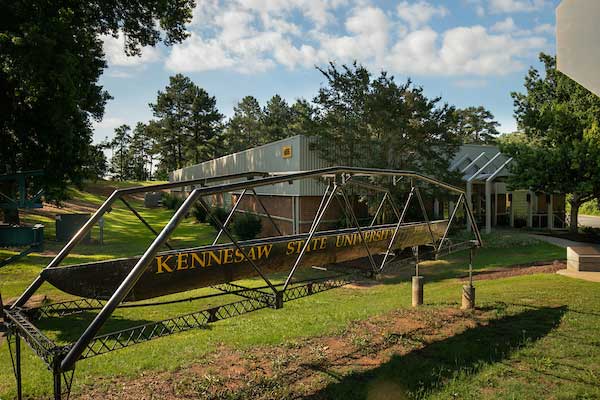What is Civil Engineering?
Civil engineering is the oldest of the engineering disciplines and involves the planning, design, and construction of facilities essential to modern life.
Graduates can look forward to employment by construction companies; city and county engineering departments; state and federal transportation organizations (such as the Georgia Department of Transportation); and civil engineering consulting and design firms. Graduates have the qualifications to enter careers in areas such as, but not limited to, transportation engineering, structural engineering, environmental engineering, geotechnical engineering, water resource engineering, and construction engineering. Typical job titles for graduates may include construction engineer, project engineer, planner, project supervisor, consulting engineer, and design engineer.

Civil Engineering requires rigorous training in basic engineering principles along with the development of skills in the areas of planning and management of construction projects and the associated systems and resources. Graduates in the area of Civil Engineering will be required to master technical elements and to demonstrate particular competence in the areas of communication, fiscal management, and project control. The broad-based background is tailored to develop professionals who will be able to move between the technical and managerial aspects of civil engineering projects and to serve in key leadership positions within the engineering profession.






